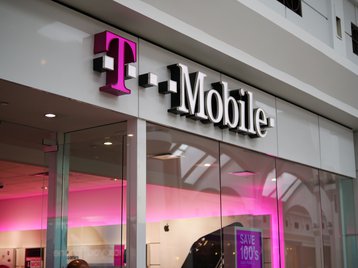So it’s finally been announced. Months after Vodafone first revealed it was holding talks with Three in early October, the two have agreed to a merger.
I’ve covered the developing story a great deal for DCD in the months following the initial announcement, much to the amusement of my colleagues, who tell me that I cover Vodafone far too regularly.
The deal itself is little surprise to anybody anymore, but that doesn’t mean the impact of the merger is any less significant.
It’s a big moment for the market, as four MNOs will become three - an aspect of the deal that will remind US-based readers of the merger between T-Mobile and Sprint in 2018.
The merger will create the UK's biggest mobile operator for subscribers, but is it a good thing?
Of course, Vodafone and Three will say it’s great
Vodafone and Three obviously said that MergeCo is "great for customers," "great for the country," and "great for competition."
The duo says that £11 billion ($14 billion) will be invested in the country over 10 years to create one of Europe’s most advanced 5G Standalone networks.
That's a lot of money for investing in 5G technology, something that can still be improved upon in the country, both with reliability and mass coverage.
As for competition, the combined business claims it will offer fixed wireless access (mobile home broadband) to 82 percent of households by 2030, which is quite a statement, while it says that a third large operator will level the competitive playing field.
MergeCo also notes that it will reach more than 99 percent of the UK population with its 5G Standalone network, delivering to customers up to a six-fold increase in average data speeds by 2034.
Time will tell if it is a good thing for customers, but it is never great for consumers to have fewer choices, and fewer players can often lead to complacency from market leaders. Competition fosters innovation, after all.
Potential for job cuts
Mergers often lead to jobs being lost. Vodafone has already said it will cut 11,000 jobs globally over the next three years.
I recall covering the big merger in the US between T-Mobile and Sprint back in 2018 when the US also went from four major mobile operators down to three.
At the time, then-T-Mobile CEO John Legere said that the merger would create jobs.
Unfortunately, there have been job cuts at the operator in the past year, with the Communications Workers of America (CWA) union estimating that close to 20,000 jobs have been lost since the merger was completed.
It's worth remembering, however, that other factors than mergers are at play. Job cuts have been announced at a host of telecoms and tech firms in recent months.
Unite is not happy
Speaking of unions, the UK trade union Unite is not best pleased with the announcement, for the issues raised above: competition and redundancies.
“It will hike people’s bills and mean job losses for Vodafone and Three workers. The government must step in and stop this reckless merger and Unite is building a cross-party coalition to demand they do so,” the union said.
The union says it has support from both sides of the political spectrum to launch a strong challenge to the deal. The body has told DCD it will be ramping up this campaign in the coming weeks.
The union is also concerned about the Chinese links of Three's owner, Hong Kong-based CK Hutchison.
“This deal will give a company with deep ties to the Chinese state an even more prominent place at the heart of the UK’s telecommunications infrastructure," warned Gail Cartmail, executive head of operations for Unite.
If we’ve seen one thing in the past 12 months, unions can have an impact. The Communication Workers Union (CWU) fought for months to get BT and Openreach workers a further pay rise, on top of the £1,500 ($1,917) initially handed out.
It must be pointed out that there has not been any mention of potential industrial action from workers at Three or Vodafone.
Will it go ahead?
Time will tell if the deal goes through, though the consensus from industry experts appears to suggest that it will be approved.
The previously blocked O2-Three merger was halted by the European Commission in 2016, but the EC won’t have a say in this deal.
There’s also been an appetite in other markets in Europe for consolidation, and many analysts I've spoken to believe it will be approved by the UK’s Competition and Markets Authority (CMA).
It must, however, be noted that the CMA put the brakes on Microsoft's proposed $68 billion acquisition of Activision, so approval is not a foregone conclusion.
Originally created as the "plucky challenger" brand, Three has been interested in a merger of some kind for a while now, while Vodafone has struggled to get deals over the line, as shareholders have been disappointed by recent financial performances.
Both can look to the US for inspiration, with T-Mobile's recent merger with Sprint providing it with a real opportunity to expand its customer base and compete with the country's other players, AT&T and Verizon.
I just hope that if the deal does go ahead, the MergeCo sticks to its promises and backs up what it says it's going to do, as the UK needs to stay on track with its 5G rollout.





